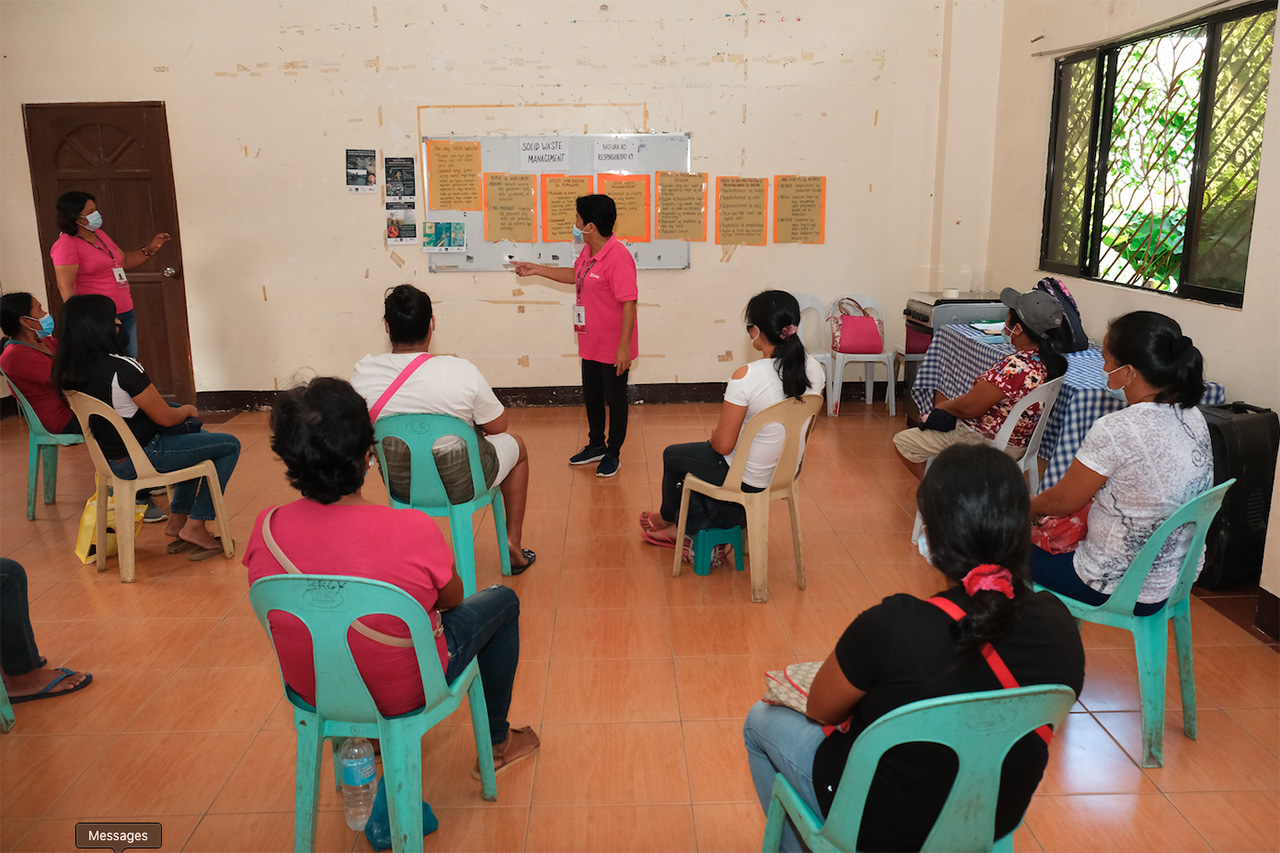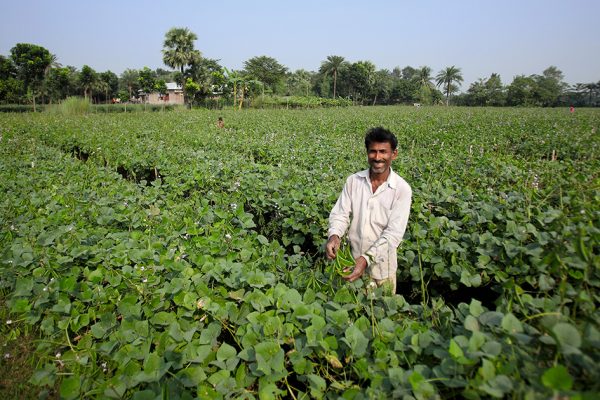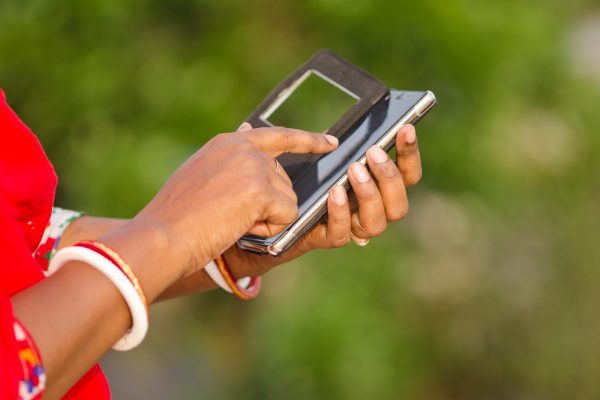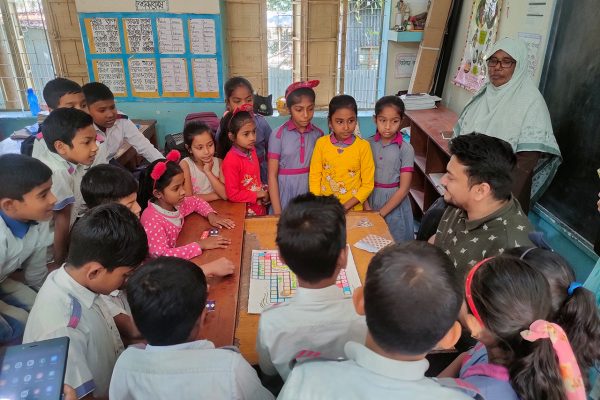A shoulder to lean on: How coaching enables success in poverty graduation
Reading Time: 4 minutes
Regular coaching and mentorship is one of the cornerstones of BRAC’s Graduation approach. In times of crises, coaching plays an even greater role in ensuring that households living in extreme poverty have the support, guidance, and encouragement they need to succeed.
“Coaching done well may be the most effective intervention designed for human performance.” – Atul Gawande
For those who have had the opportunity to attend school, play a sport, or have a close-knit family, one might not even realise it, but coaching and mentorship is a regular part of generating success in many aspects of daily life. Thinking back to primary school, they might have helped us win a race or pass an exam.
It is with these similar techniques that coaching is central to the success and long-term growth of the over two million participants of BRAC’s Graduation programmes around the globe. In BRAC’s Graduation approach, coaching is an integral component that cuts across all four of its foundational pillars (livelihoods promotion, social protection, financial inclusion, and social empowerment) that collectively enable a household to build its resilience and lift themselves out of extreme poverty. It is one of the main aspects that sets our approach apart from other social protection or financial inclusion-focused programming.
Read more: Building resilience in the midst of ensuing chaos in the Philippines
Coaching takes the form of regular touch points between participants and programme staff and is critical in guiding on livelihood management, resolving challenges, and monitoring household welfare. Coaches go beyond casework or case management by instilling hope, trust, and confidence in each person and family they work with. They help participants translate their vision of a future out of poverty into realistic steps, and prepare them to succeed on their own, long after the formal programme ends. It is this hands-on approach that allows coaches to provide needs-based tailored support and ensure their wellbeing.
Standing by participants in their time of need
A coach’s support is even more essential in times of crises in order to assure the participants that they are not on their own. During Yemen’s political revolution in 2011, the CGAP-Ford Foundation Graduation pilot, led by the Government of Yemen with technical assistance from BRAC, demonstrated a strong commitment to its participants. A field officer assigned for this pilot said, “We tried our best to visit participants regularly because we felt it was our duty to ensure that they were not abandoned during a time of uncertainty.” These field staff, like in many of the areas where we work, often had to travel long distances to make their regular visits amidst the threat of violence or danger.
This commitment did not go unnoticed by the participants, who found the visits to be a source of comfort. Mahmood, a programme participant, expressed his gratitude for the staff, “I really appreciate the field officers coming to my house every week, especially during the crisis when it was risky for them. It made me feel like I had support during a very difficult time.”

A man plows his field in Yemen (World Bank 2007)
As the situation on the ground continued to grow more unstable, the coaches closely monitored and provided suggestions for ways to bolster their sources of income or switch to something more lucrative in real time, something that was only possible through close and regular touch points. Through technical training and suggestions, participants who were struggling with the ever-changing conditions were able to pivot and diversify their livelihoods, as they slowly worked toward their short and long term goals. Mitigation-planning and resilience-building embedded in the programme makes coaching an integral part of the overall approach, one that has certainly been put front and centre with current events.
A countermeasure to the effects of a global pandemic
More recently, in the wake of the COVID-19 pandemic, the UPG programme adapted the coaching component to provide support to households living in poverty and vulnerable situations that were hit the hardest, while ensuring the safety of the staff and the participants. Due to mobility restrictions, household visits and group meetings have been substituted with frequent check-ins over the phone, and outdoor meetings are being held with strict social distancing measures. With growing concerns about the rising gender-based violence during the pandemic, the Graduation programme, through its holistic support, have been mitigating the impact on participants while encouraging positive coping mechanisms.
In the Graduation pilot in the Philippines launched by the Department of Labor and Employment (DOLE), in partnership with the Asian Development Bank (ADB) and with the technical assistance of BRAC Ultra-Poor Graduation Initiative (UPGI), a coach relates how he was able to help a participant navigate through gender-based violence, “I told her [the participant] to speak to the authorities regarding her experience and the law will surely be at her side, but she was hesitant. I assured her that she will have my support and that I am willing to help her when she is ready to speak out. The next time I visited her, she was delighted that her husband had changed. [He had] heard the sentiments of his wife, the legal consequences he might face, and the support I was providing, which made him curb his violent behaviour and become a better husband.” As with any major change during the programme lifecycle, coaches continue to work with participants and oftentimes their spouses, to ensure issues are resolved and improvements continue being built off a steady foundation.

A typical scene at a group coaching session during the DOLE Graduation project in the Philippines (BRAC 2020)
While numerous accounts from participants confirm the importance of coaching, few research studies have isolated its impact from other interventions in the Graduation programme. BRAC, in partnership with Fundación Capital, and with support from Canada’s International Development Research Centre (IDRC) and McGill University, recently released a scoping paper in order to start to demystify the less visible impacts of the Graduation programme, particularly on empowerment and gender equity. Further research in this area is critical in determining the effectiveness of different delivery mechanisms along with the implications on cost, particularly for the ones by the government.
In the DOLE Graduation pilot, Innovations for Poverty Action (IPA) conducted a randomised control trial to compare individual versus group coaching and individual versus group livelihoods, the results of which are forthcoming. BRAC’s assessment of the programme’s monitoring data indicates that individual livelihoods and group coaching are the optimal configuration of the Graduation approach given that it mitigates the challenges in group livelihoods while maximising the benefits of group coaching.
As BRAC UPGI works to expand poverty eradication efforts globally by partnering with governments to Graduation programming to scale, leveraging the human capital of our participants through coaching will continue to be a major priority. The exponential power of building the confidence, independence, and empowerment of people living in extreme poverty has proven time and time again to have life-changing impacts on participants and their families alike. And while not everyone has the opportunity to work with the marginalised communities that BRAC supports, the next time you have the opportunity to give advice or help someone through a challenge that stands in their way, remember, the impact your guidance or expertise can have on the trajectory of their lives is greater than you could ever imagine.
Nazia Moqueet is Senior Technical Advisor and Caitlin O’Donnell is Technical Advisor, BRAC Ultra-Poor Graduation Programme.





